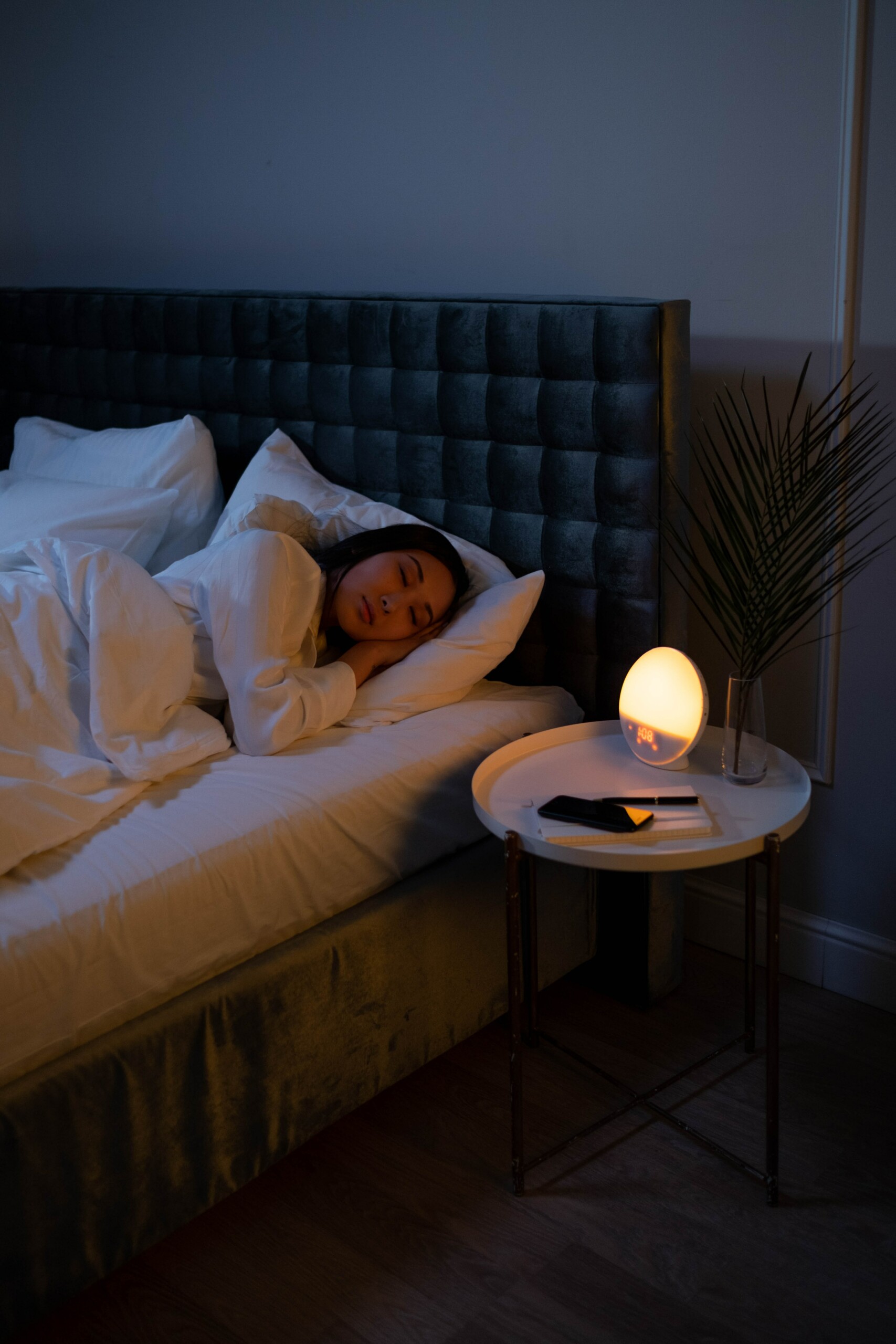Sleep disorders such as insomnia cause trouble falling asleep and staying asleep.
Some chronic conditions can be either short-term (acute) or long-term (chronic), however, they can also be temporary.
An individual with chronic insomnia sleeps at least three nights a week for at least three months.

Which symptoms are associated with this sleep disorder?
- Sleeping problems
- Awakening during the night
- Getting up too early
- Feeling unrested after a night’s sleep
- Feeling tired or sleepy during the day
- Feeling irritable, depressed, or anxious
- Attention problems, difficulty focusing or memory problems
- An increase in errors or accidents
- Sleep concerns that persist

So, how much sleep do you actually need?
According to the CDC, the amount of sleep you need changes as you age.
These are their recommendations according to different age groups:
- Newborns (0–3 months): 14 to 17 hours
- Infants (4–12 months): 12 to 16 hours per 24 hours
- Toddlers (1–2 years): 11 to 14 hours per 24 hours
- Preschool (3–5 years): 10 to 13 hours per 24 hours
- School age (6–12 years): 9 to 12 hours per 24 hours
- Teenagers (13–18 years): 8 to 10 hours per 24 hours
- Adults (18–60 years): 7 or more hours per night
- Adults (61–64 years): 7 to 9 hours
- Adults (65+ years): 7 to 8 hours
What factors are contributing to your inability to sleep?
Insomnia may be the primary problem, or it may be associated with other conditions.
Chronic insomnia is usually a result of:
High levels of stress
Your mind can be active at night when worrying about work, school, health, finances, or your family. In addition to stressful life events or trauma – such as a loved one’s death, divorce, or job loss – insomnia can also occur as a result of anxiety or depression.
Habits that disrupt your sleep
Unhealthy sleep habits include naps, stimulating activities before bed, an uncomfortable sleep environment, and working, eating, or watching TV in bed. Just before you go to bed, using electronic devices such as computers, TVs, video games, smartphones, or other screens can cause sleep disruptions.
Travelling or work schedule
You rely on your circadian rhythms to regulate aspects of your life such as your sleep cycle, metabolism, and body temperature. Sleeping disorders are caused by disrupting your body’s circadian rhythms. Travelling across multiple time zones, working a late or early shift, or switching shifts frequently are all causes of jet lag.
Eating habits
Late night eating. It is fine to eat a light snack before bedtime, but eating too much may make you feel physically uncomfortable while lying down. Some people also experience heartburn, caused by a backflow of acid into the esophagus after eating, which causes them to stay awake.

How can you treat your insomnia?
When insomnia affects your daily functioning, seek a professional to find out the cause and how it can be treated.
A healthy sleep routine can prevent insomnia and promote sound sleep. Try these common practices to improve your sleep:
- Stay consistent with your bedtime and wake up time from day to day, including weekends.
- Be active — regular physical activity promotes sound sleep.
- Medications may contribute to insomnia. Check them out.
- Naps should be avoided or limited.
- Stay away from caffeine, alcohol, and nicotine.
- Do not eat or drink large amounts before bedtime.
- Relax by taking a warm bath, reading or listening to soft music before going to sleep.
Medical conditions or the use of certain drugs may also contribute to chronic insomnia. Treatment for the medical condition may improve sleep, but insomnia may persist following treatment.
If the underlying cause of insomnia is treated, it can be resolved, but sometimes it lasts for years.
Seeking professional advice
We now understand that sleep is vital to a person’s overall health and well-being, but often neglected. During sleep, the body is able to repair itself, making it fit and ready to face the day ahead. It is also possible to prevent excessive weight gain, heart disease, and illness duration by getting adequate rest.
Even though the amount of sleep you get each day is critical, other aspects of your sleep affect your health and wellbeing. The quality of your sleep is also essential. You may benefit from improving your sleep habits or from having a sleep disorder diagnosed and treated. Professionals are available all over the world to assist you. All this is possible through Conrati. Expert assistance is now at your fingertips.
Disclaimer: This article is written and published for educational purposes. It is not intended on substituting a professional diagnosis. If you suspect that you may suffer from chronic insomnia or any other mental health condition, we suggest you seek help from a mental health professional.









4 Replies to Are you a chronic insomniac?
Why your child should have a tutor
Conrati nominated as a Top Environmental Consulting Company by Futurology
How to practice mindfulness each day
What happens during each stage of grief?
How to boost 8 different forms of health
Conrati nominated as a Top Environmental Consulting Company by Futurology
How social media affects mental health
Understanding Bipolar Disorder